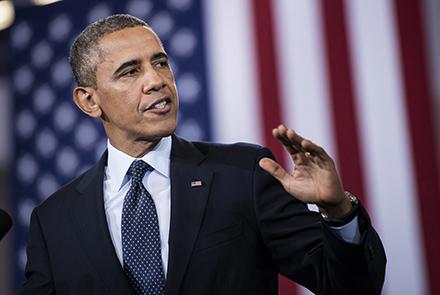What was President Barack Obama's hardest decision during his two terms in office? A massive troop surge in Afghanistan, he said in an interview aired Sunday.
"Toughest decision was early in my presidency when I ordered 30,000 more troops into Afghanistan," Obama, who leaves office in less than two weeks, told ABC.
After a protracted debate inside the administration that pitted U.S military commanders against White House advisers, Obama announced the 30,000-troop surge in December 2009.
The decision would bring the U.S contingent in Afghanistan to nearly 100,000 troops along with almost 50,000 allied troops.
"I think it was the right decision because the Taliban at that point had gotten a lot of momentum before I'd gotten into office, partly because we hadn't been paying attention as much as we needed to Afghanistan," Obama said in the interview taped Friday.
The president had hoped to withdraw most U.S military forces from Afghanistan by now, leaving behind just a small force.
But the United States still has some 8,400 military personnel in the country, and announced Friday it is sending some 300 Marines to Helmand province in the coming months.
Meanwhile in Iraq, more than 5,000 US soldiers are still on the ground providing critical support to the country's army, which is unable to man a war alone against Daesh extremist fighters.
Asked whether he found it disappointing that so many troops remain in both countries, Obama said the United States is "not going to get the kind of decisive, permanent victories in this fight against terrorism that we would get from fighting another country."
"But we don't have this huge footprint, we are less likely to be targeted as, you know, occupiers," he added about the reduced number of troops.
Even after decimating Al-Qaeda in Pakistan's tribal areas and killing the jihadist group's leader Osama bin Laden, groups in the region still "have both the interest and the capacity if we don't maintain vigilance to strike against the United States," he said.


